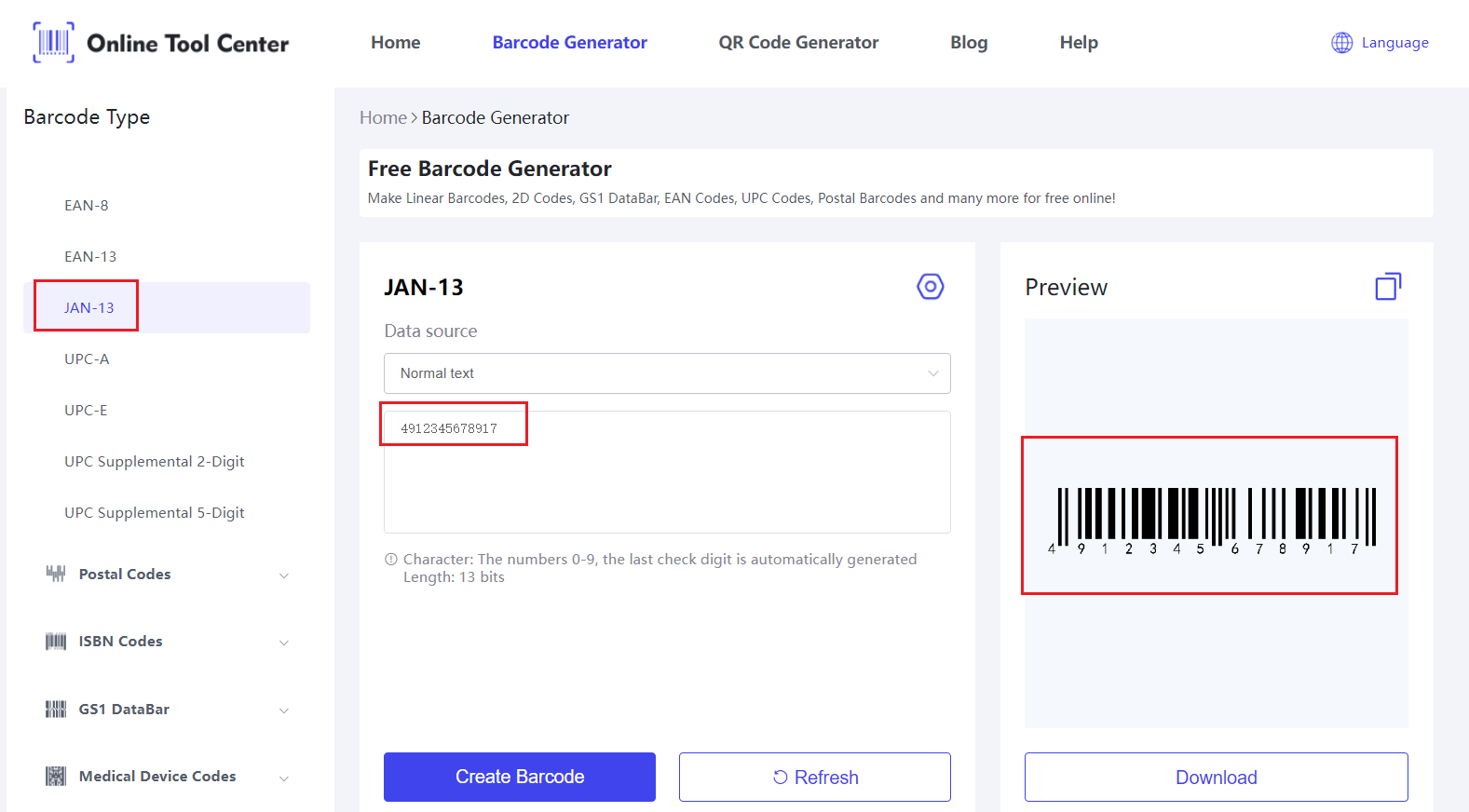In the world of retail and inventory management, the JAN-13 barcode stands as a critical subset of the well-known EAN-13 barcodes. Learn about the importance of JAN-13 barcodes, outlining their fundamental role in streamlining operations and enhancing accuracy across various sectors.
We will explore the structure, applications, generation, and future trends of JAN-13 barcodes, equipping you with the knowledge to efficiently implement these tools in your business processes.
Understanding JAN-13 Barcodes
1. What is a JAN-13 Barcode?
A JAN-13 barcode, primarily used in Japan, is a specific format of the global EAN-13 standard. It is designed to meet the unique requirements of the Japanese retail market.
2. Definition and Structure of JAN-13 Barcodes
JAN-13 barcodes include a 13-digit numerical code. The structure typically comprises a country-specific prefix (for Japan, this is usually "49" or "45"), a product number, and a checksum digit to ensure the barcode's accuracy.
3. Differences Between JAN-13 and Standard EAN-13 Barcodes
While JAN 13 barcodes share the same number of digits as EAN-13, they are distinguished by their country-specific prefixes, which denote the product's national origin.
4. How JAN-13 Barcodes Work?
Each component of a JAN 13 barcode plays a crucial role:
● Prefix: Indicates the country of origin.
● Product Number: Identifies the specific item.
● Checksum: Validates the integrity of the barcode.
A visual breakdown of a JAN-13 barcode clearly shows these components, ensuring easy understanding and application.
Applications of JAN-13 Barcodes
Here are three applications of JAN-13 barcodes:
1. Retail Checkout Efficiency
JAN-13 barcodes are extensively used at retail checkouts to speed up the billing process and reduce human errors. By scanning a JAN-13 barcode, the POS system quickly retrieves product information, such as price and name, facilitating a faster and more accurate checkout experience.
2. Inventory Management
In inventory management, JAN-13 barcodes allow for precise tracking of products throughout the supply chain—from warehouse to point of sale. By scanning the barcodes, inventory managers can access real-time data on stock levels, monitor movement, and manage reordering processes efficiently.
3. Product Information Accessibility
JAN-13 barcodes provide a quick way for consumers and staff to access detailed product information. Scanning the barcode can link to databases that provide details such as nutritional information, manufacturing dates, expiration dates, and even promotional or pricing information.
Creating JAN-13 Barcodes
1. Choosing a free JAN-13 Barcode Generator
When selecting a JAN 13 barcode generator, key features to consider include ease of use, accuracy, and compatibility with existing systems. OnlineToolCenter offers a free online JAN-13 barcode generator that meets these criteria.

2. Tips for Ensuring Accurate Barcode Generation
Ensure the accuracy of your input data and verify the generated barcode with a barcode scanner before full-scale printing or distribution.
Best Practices for JAN-13 Barcode Implementation
1. Integration with Business Systems
JAN-13 barcodes can be seamlessly integrated into existing POS and inventory systems, enhancing the efficiency and accuracy of business operations.
2. Tips for Printing and Placement
For optimal scanning, ensure barcodes are printed clearly and placed where they can be easily scanned by checkout scanners or inventory management devices.
Future of JAN-13 Barcodes
1. Technological Advancements
Emerging technologies like RFID and NFC are set to augment the functionality of traditional barcodes, providing faster and more secure methods of data transfer.
2. The Impact of Digital Transformation
As digital trends evolve, the adaptability of JAN-13 barcodes will be crucial. Future developments may include enhanced data capacity and integration with mobile technologies.
In short, the strategic use of JAN-13 barcodes is vital for efficient inventory and retail management.
Ready to streamline your retail or inventory system? Try generating your own JAN-13 barcode today at our free online barcode generator and explore additional barcode solutions!
FAQs
1. What are the main differences between JAN-13 and UPC barcodes?
JAN-13 is specific to Japan, while UPC is commonly used in the United States, though both have similar structures.
2. What are the common errors to avoid when generating JAN-13 barcodes?
Ensure accurate data entry and verify the barcode's readability to avoid printing errors.
3. Can JAN-13 barcodes be used internationally?
While JAN-13 is optimized for Japan, it can be recognized internationally wherever EAN-13 is supported.





